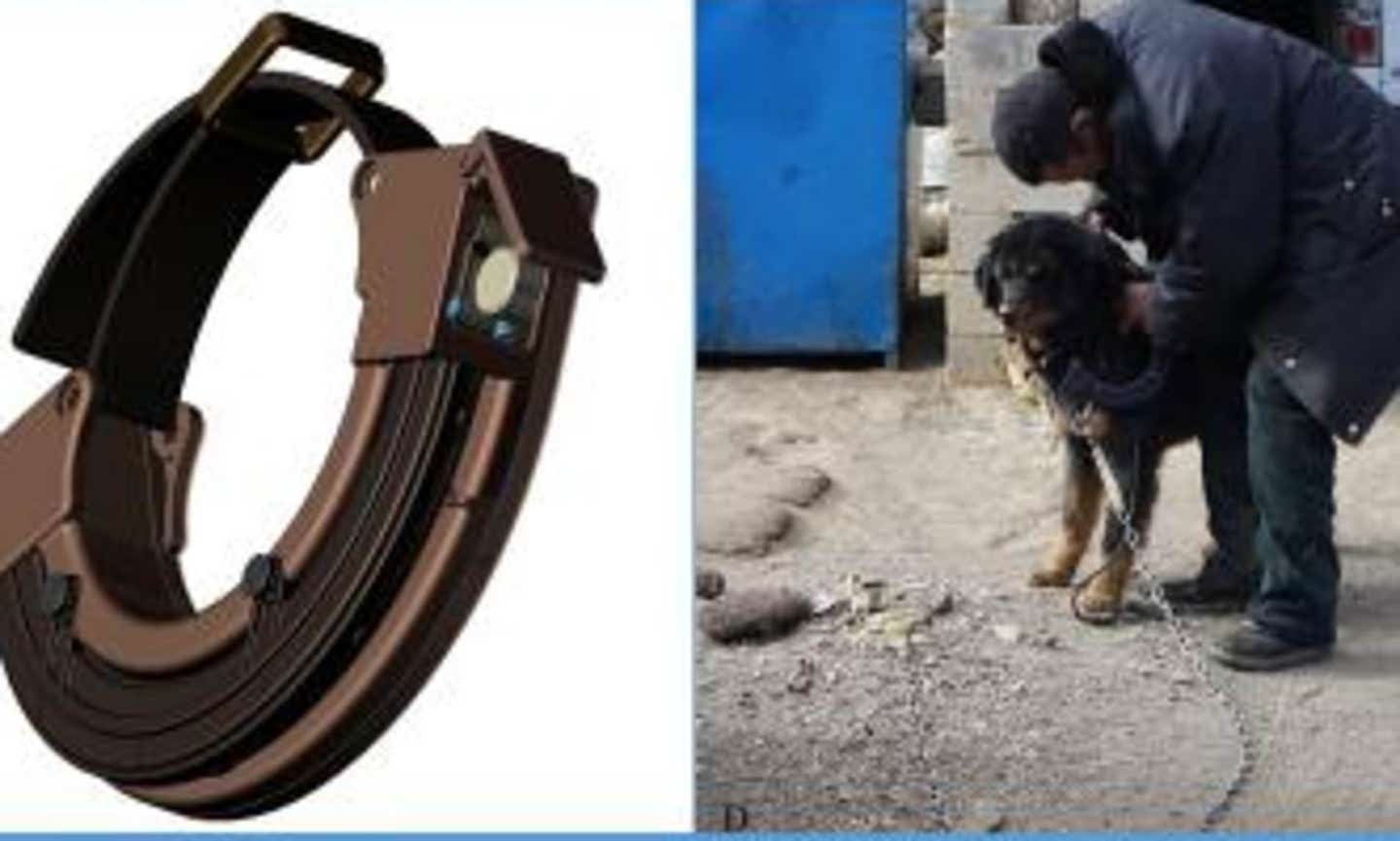‘Smart collar’ could prevent tapeworms in dogs
Dogs infected with echinococcosis play a major role in spreading tapeworms across human populations around the world.

[July 9, 2021: PLOS Neglected Tropical Diseases]
Dogs infected with echinococcosis play a major role in spreading tapeworms across human populations around the world. Now, researchers have developed a "smart collar" which gradually delivers a steady dose of a deworming drug to dogs. The collar successfully reduces the animals' risk of echinococcosis, the team reports in PLOS Neglected Tropical Diseases
Dogs can be infected with either Echinococcus granulosus sensu lato, which causes cystic echinococcosis (CE), or E. multilocularis, which causes alveolar echinococcosis (AE). In China, a national survey showed that CE is endemic in at least 368 counties in northwest China and is co-endemic with AE in 115 of those counties. The role of dogs in transmitting echinococcosis in these areas is significant, and efforts to dose dogs with monthly deworming treatments have been difficult to implement.
In the new work, Xiao-Nong Zhou of the Chinese Center for Disease Control and Prevention and colleagues developed a deworming collar which delivers praziquantel (PZQ), known to be the most effective deworming drug. They designed the collar to be waterproof, anti-collision, cold-proof, and to automatically deliver a regular, quantitative dose of PZQ. 18 smart deworming collars were used for field testing in Seni district of China, and 523 collars were tested in Henzuo city. Dogs for the trial were randomly selected from all registered dogs in each jurisdiction.
Development and field tests of smart deworming collar (A: 3D stacked graph of smart collar; B: Embedded modules for smart collar; C: Overall shape of Smart collar; D: Recovery of collars in July 2019 in Seni district after they had been attached for a year). Credit: Yang S-J et al., 2021, PLOS Neglected Tropical Diseases, CC-BY 4.0 (creativecommons.org/licenses/by/4.0/)
In pre-field trials, the 551 collars were 100.0% anti-collision, 99.5% waterproof and 100.0% coldproof, and the automatic PZQ delivery occurred 87.8% of the time, even with the collars being attached to dogs for 12 months in the harsh climates of remote locations on the Tibetan Plateau.
The compliance rate of dog owners to attach the collar to their dog was 94.7% in Seni district and 88.8% in Hezuo city. When compared to a control group, dogs in Seni district wearing the smart collar had a 0.182 times risk of a positive Echinococcus antigen test (95%CI 0.049-0.684, P=0.012) and dogs in Hezuo had a 0.336 times risk of a positive antigen test (95% CI 0.178-0.706, P=0.003).
"In order to prevent the transmission of echinococcosis from dogs to humans and livestock completely, we developed a smart Internet of Things (IoT)-based deworming collar which can deliver PZQ baits for dogs automatically and regularly," the researchers say. "Two pilot studies have showed that it is an excellent alternative to existing manual deworming methods, and the difficulties associated with performing deworming in remote areas with scarce resources can be overcome."
Like these kind of feel good stories? Get the Brighter Side of News' newsletter.
Tags: #New_Innovation, #Pet_Health, #Dogs, #The_Brighter_Side_of_News
Joseph Shavit
Head Science News Writer | Communicating Innovation & Discovery
Based in Los Angeles, Joseph Shavit is an accomplished science journalist, head science news writer and co-founder at The Brighter Side of News, where he translates cutting-edge discoveries into compelling stories for a broad audience. With a strong background spanning science, business, product management, media leadership, and entrepreneurship, Joseph brings a unique perspective to science communication. His expertise allows him to uncover the intersection of technological advancements and market potential, shedding light on how groundbreaking research evolves into transformative products and industries.



